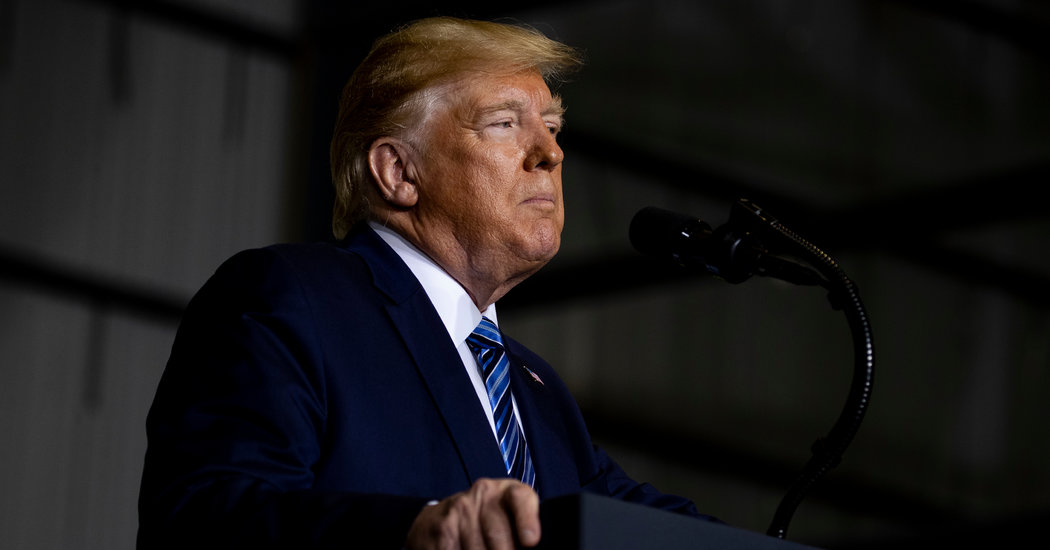WASHINGTON — The federal budget deficit is growing faster than expected, even as President Trump muses about more tax cuts and other ideas that would add to government debt.
The deficit will reach $960 billion for the 2019 fiscal year, which ends Sept. 30, and $1 trillion for the 2020 fiscal year, the Congressional Budget Office said in updated forecasts released on Wednesday. Previously, it had projected an $896 billion deficit for 2019 and $892 billion for 2020. Those numbers would be even higher, if not for lower-than-expected interest rates, which are reducing the cost of servicing the national debt.
Rising deficit projections are the result of sluggish growth in federal revenue after Mr. Trump’s 2017 tax cuts went into effect, and several bipartisan agreements to raise military and nondefense domestic discretionary spending, which Mr. Trump signed into law.
Typically, the budget deficit shrinks when unemployment is low. Mr. Trump’s administration has defied that trend.
He has not pushed Congress to enact any of the major cuts to federal spending that he lays out each year in his official budget proposal. His tax cuts have not come close to paying for themselves via faster economic growth, as Republicans promised they would. The budget office said on Wednesday that it expects growth of 2.6 percent this year and 2.1 percent in 2020, well below the more than 3 percent growth the Trump administration has promised for those years.
Mr. Trump’s indifference to deficits has shattered his campaign promise to not only balance the budget, but to pay off the entire national debt. And it has left his fellow Republicans, who won deficit-reduction measures under President Barack Obama at a cost to what was still a fragile economic recovery, in a bind. Congressional Republicans have largely gone along with Mr. Trump’s moves to add more debt, even as they insist they will return to shrinking the deficit if Mr. Trump wins a second term in office.
The president has talked in recent days about moving to unilaterally reduce capital gains taxes, a move that is estimated to add $100 billion to deficits over the next decade, and to cut payroll taxes, which could reduce revenues by $75 billion a year for every percentage point cut in payroll tax rates.
On Wednesday, Mr. Trump said he was not looking to push through a tax cut right, a reversal from his comments on Tuesday, when he said he was looking at both a payroll tax cut and indexing capital gains for inflation.
“I’m not looking at a tax cut now,” Mr. Trump told reporters. He added that he would need a letter from the Attorney General in order to change the tax treatment of capital gains and that it was also not something he was currently considering.
“It’s not something I love,” he said.














